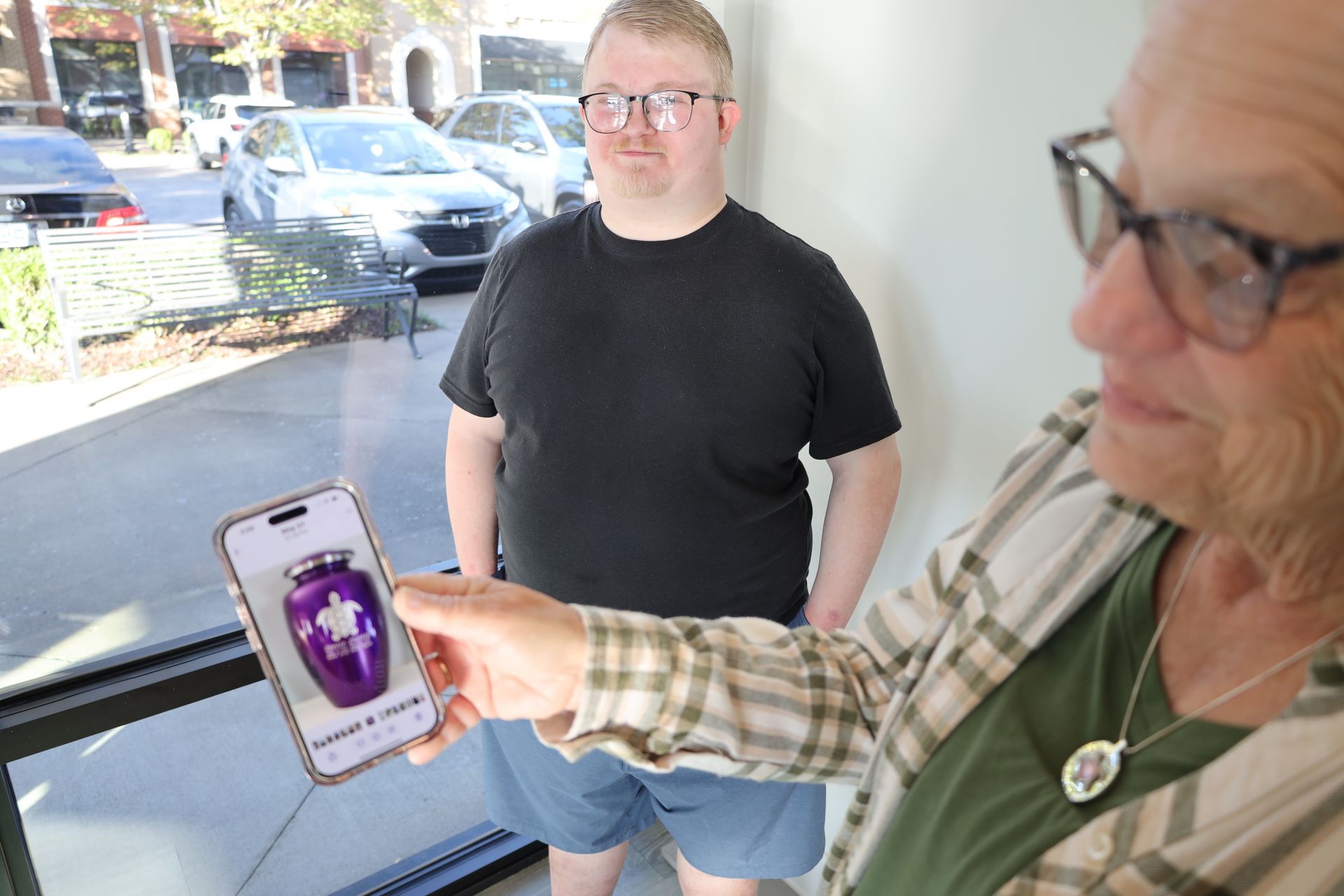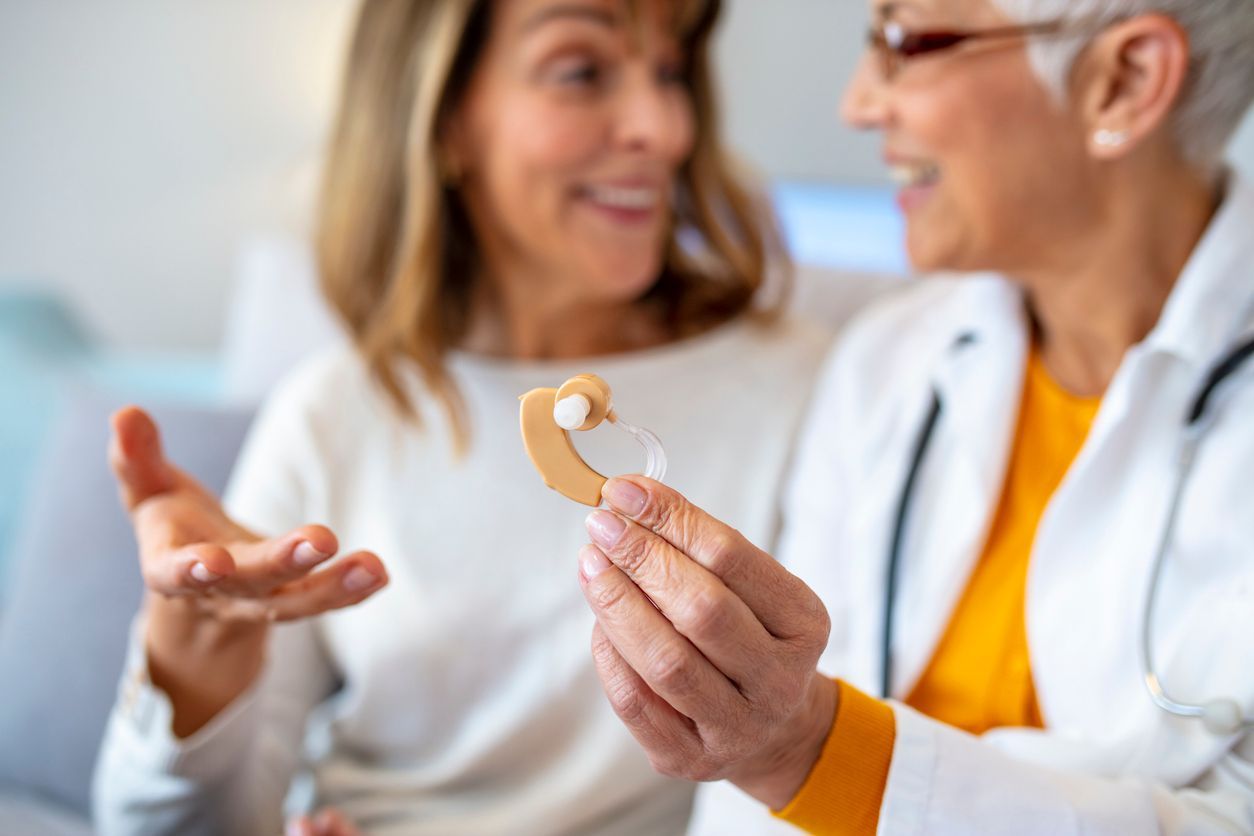Tinnitus and Mental Health: Insights from Dr. Megan Johnson

As a doctor of audiology for more than 20 years, Dr. Megan Johnson, audiologist and owner of Johnson Audiology, and her hand-picked team of 10 other audiologists have helped thousands of people address hearing loss. “Assisting people to re-engage and re-connect with their lives through improved hearing is not just my job; it’s my life’s work and so rewarding,” she says. “Hands-down, though, giving our patients access to new rehabilitation options for tinnitus is one of the highlights of my audiology career."
For some people, ringing in the ears, or tinnitus, is a mild bother. For others, it can be debilitating, impacting their mental and emotional health by causing profound anxiety, depression, sleeplessness, anger issues, even thoughts of suicide. “One patient described her tinnitus as being locked in a small room with a million tree frogs calling in her ears 24-hours a day. She felt like a prisoner in her own body because she could not escape the noise,” Dr. Johnson says.
Subjective tinnitus, which is the most common type, is a self-perceived sound that manifests for people as ringing, roaring, buzzing, chirping—even musical notes—in the ears. The condition likely dates to the earliest human civilizations. In the last 20 to 30 years, however, tinnitus has emerged as an acknowledged serious public health issue, affecting approximately 50 million Americans. More than two million people report tinnitus so severe it disrupts daily living and function.
“While tinnitus can have a variety of causes, the number one culprit is hearing loss,” Dr. Johnson says. When a person’s hearing is damaged from loud and/or repetitive noises, permanent hearing loss often results and usually occurs in specific frequencies. Dr. Johnson offered these examples: “For instance, a dentist may experience the occupational hazard of losing hearing in the high frequencies because of the damage done to hearing from the repeated whine of a high-powered dental drill. A factory worker, on the other hand, may lose low frequency hearing from exposure to the constant low decibel drone of cooling fans or machinery in the workplace.” When certain frequencies within a person’s hearing spectrum are damaged, sounds in those frequencies go unheard. For example, lose your high frequency hearing, and sounds like birdsong or young children’s voices become undetectable. As the brain searches for input in those missing frequencies and comes up empty-handed, the brain will “fill in the gaps” with the ringing, roaring, or buzzing that is tinnitus.
Dr. Johnson draws this connection: “The increase in reported tinnitus is not surprising. We live in a much noisier world than at earlier times in human history. Damage to hearing is on the rise so, by default, tinnitus is also on the rise.”
As the incidence and severity of tinnitus continue to put a heavier burden on more and more people, additional resources have been devoted to research to better understand the condition. Dr. Johnson says that this should lead to increased awareness for those struggling with tinnitus as well as a deeper understanding by the healthcare providers supporting them. Dr. Johnson mentions, “It’s certainly time that happens. Historically, when a person broached the subject of tinnitus with his or her doctor, they were often told, ‘Well, you just have to learn to live with it.’ When a patient gets the brush-off with a trivializing comment like that, it is so detrimental. That person may not have the courage to bring up their tinnitus struggles again for years, if ever, continuing to suffer in ‘noisy silence’ from the cumulative effects of the unresolved mental and emotional health issues the disorder can bring on. I implore healthcare providers to remove verbiage from their provider-to-patient vocabulary that dismisses a person’s tinnitus.”
Guidelines released in March 2020 from the National Institute for Health and Care Excellence (NICE), entitled Tinnitus: Assessment and Management, may well be a factor in turning that tide. Many health care and social care professionals are beginning to use the advice NICE offers on supporting people presenting with tinnitus as well as the recommendations on when to refer a person to a qualified specialist for assessment and management.
Obvious choices for tinnitus management referral are to audiologists and otolaryngologists, the health care field’s most qualified professionals for issues dealing with disorders of the ear and hearing. “I encourage people with tinnitus to seek out these professionals and to ask if they have specialized training and experience in working with those with tinnitus. Even in these specialties, there can be varying degrees of expertise, knowledge and responsiveness.”
Dr. Johnson says many people do not even associate their struggle with tinnitus as putting them at risk for mental and emotional health issues. “Our audiologist at Johnson Audiology seek to learn more about how each individual experiences tinnitus. It is unique for each person and can present in a myriad of ways,” she says. How does it sound to that individual? Ringing? Roaring? Buzzing? Is it constant or does it come and go? Is it in one ear or both? Does it make you feel stressed, anxious, depressed, desperate, irritable, hopeless? Does it cause sleeplessness, tiredness, poor appetite? Do you have dental and jaw issues like a temporomandibular joint (TMJ) disorder? Have you identified triggers that set off or magnify your tinnitus like caffeine, nicotine, or alcohol use? “The more honest and open patients are, the more we are able to help,” she says.
Dr. Johnson says that treatment and management for tinnitus can include a host of options tailored to the person. “Some are in our wheelhouse as audiologists, such as sound therapies like masking and habituation as well as fitting a person with hearing aids to restore lost sound frequencies. Restore sound where you have hearing loss, and the brain no longer needs to fill in the silence with the ringing, roaring, and buzzing. About seven out of ten patients will notice a subjective decrease in their tinnitus just by treating their hearing loss,” she explains.
Tinnitus therapy is not limited to these options, however. “A multi-disciplinary approach is often the best. For instance, a behavioral therapist with training in tinnitus management can help a person learn techniques for minimizing the mental and emotional toll of tinnitus. A dentist may be of help for someone whose tinnitus is triggered by jaw issues, like TMJ,” Dr. Johnson comments.
She mentions that getting to the bottom of specific triggers for a person’s tinnitus and employing the appropriate lifestyle changes can make a huge difference. “I had a patient recently who was taking a prescribed medication that was exacerbating her tinnitus. She worked with her general health care provider to simply change the time of day she was taking that medication, and her tinnitus faded.” For those with triggers like caffeine, sodium, nicotine, and alcohol, reducing intake or abstaining from those substances can help.
For those with tinnitus tied to stress, techniques like relaxation and mindfulness therapy can be game changers. Dr. Johnson says. “Interestingly, the same parts of your brain that are activated in the fight or flight response—your autonomic nervous system—also light up when a person is experiencing tinnitus. It begins to have a cascading effect because once the tinnitus is forefront in your mind that heightened state of anxiety builds on itself.” She continues, “The mind is a powerful tool, though. Using brain mechanics, many have learned to control tinnitus rather than it running roughshod through their lives. That’s why tactics like cognitive behavioral therapy are a great recommendation for many patients with tinnitus.”
Dr. Johnson also mentions that mobile phone apps, like the one the hearing aid manufacturer Widex offers, are especially useful tools. “The Widex Zen app is free to download and offers a combination of sound therapy options, relaxation and meditation exercises as well as practical guidance, right there on your phone,” she says.
Dr. Johnson shares: “At Johnson Audiology, we have had the pleasure of helping many patients learn to successfully manage their tinnitus. I had a patient whose tinnitus was having such a profound effect on her, she had withdrawn from life, stopped working, etc. Now that she has addressed her tinnitus with various management techniques, she has a renewed hope. She has gone back to her career and is interacting with family and friends again.”
If you are experiencing tinnitus, whether mildly bothersome or life-altering, call Johnson Audiology today for a tinnitus evaluation and get on the road to managing your tinnitus or make an appointment using our
online scheduler.
Recent Posts



